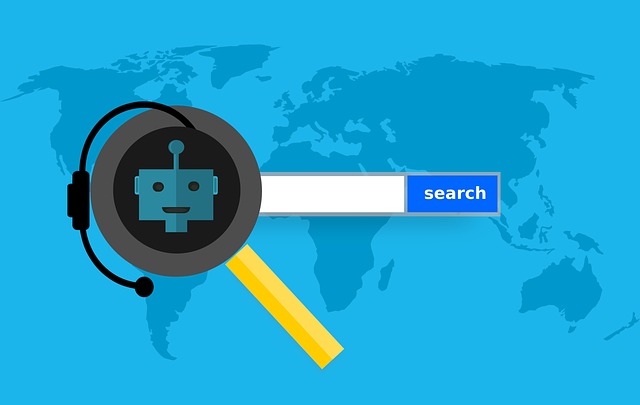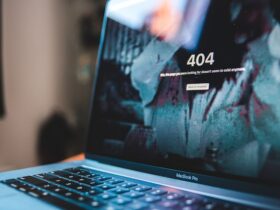In today’s digital age, our personal computers have become the center of our work and personal lives. From storing important documents to connecting with friends and family, we rely on them for so much. But with all this information at stake, it’s essential to take steps to protect your PC from cyber threats. In this blog post, we’ll explore some practical tips that can help safeguard your computer against hackers, viruses, and other malicious attacks. So buckle up and get ready to learn how to keep your PC safe in the ever-evolving landscape of cybersecurity!
Avoid downloading pirated software
When it comes to downloading software, only download from official sources. This will protect your computer from any malware or viruses that may be embedded in pirated software. Not to mention, pirated software is illegal and you could face hefty fines if caught. So, play it safe and avoid downloading pirated software altogether.
Use a strong password
A strong password is one of the most important tools for keeping your account safe. By using a combination of letters, numbers, and symbols, you can create a password that will be difficult for others to guess. Be sure to choose a password that is not easily guessed, and never use the same password at more than one site.
Keep your computer up to date
It’s important to keep your computer up to date in order to protect it from security threats. Here are a few tips on how to do this:
Install security updates as soon as they’re available. These updates patch vulnerabilities that can be exploited by malware or hackers.
Set your computer to install updates automatically. This way, you’ll always have the latest security fixes.
Keep your antivirus software up to date. Antivirus software protects your computer from malware, so it’s important to have the latest version installed.
Some update processes can take a while, so make sure you schedule them for a time when you won’t need to use your computer for other tasks.
By following these tips, you can help keep your computer safe and secure.
Use a firewall
A firewall is a piece of hardware or software that helps to protect your computer from unauthorized access. Firewalls can be used to block incoming connections from the internet, or to allow outgoing connections from your computer to the internet while blocking all other traffic.
There are many different types and configurations of firewalls available, so it is important to choose one that fits your needs. If you are not sure which firewall to use, you can ask your computer administrator or consult a trusted computer security advisor.
Don’t click on links in emails
When it comes to email, be wary of clicking on links. Although email is a great way to stay in touch with friends and family, it’s also a common way for scammers to try to steal your personal information. If you get an email from someone you don’t know, or even from someone you do know but the message seems suspicious, don’t click on any links in the email. These links could take you to a fake website that looks real but is actually just a way for scammers to collect your personal information.
Use an antivirus program
An antivirus program is a software that helps protect your computer against malware. Malware is a type of software that can harm your computer, steal your personal information, or even delete your files. A good antivirus program will help keep your computer safe from malware by scanning your computer for malicious software and removing it. There are many different antivirus programs available, so you should choose one that fits your needs.
1. Keep up with system and software security updates
One of the best ways to protect your pc is to keep up with system and software security updates. By installing the latest security updates, you can help protect your pc from new and emerging threats. Here are a few tips for keeping your pc secure:
Install security updates as soon as they are available: By installing security updates as soon as they become available, you can help protect your pc from new and emerging threats.
Keep your antivirus software up to date: Antivirus software can help protect your pc from malware, so it’s important to keep it up to date.
Use a firewall: A firewall can help block unauthorized access to your pc.
These are just a few of the ways you can help protect your pc. For more information on how to keep your pc secure, check out our other blog posts or contact us today.
2. Have your wits about you
When it comes to protecting your PC, you need to have your wits about you at all times. There are a lot of dangers out there that can harm your computer, and you need to be aware of them in order to keep your PC safe.
One of the biggest dangers to your PC is viruses. Viruses can come from a variety of sources, and they can wreak havoc on your computer if you’re not careful. Make sure that you have a good antivirus program installed on your computer, and that you keep it up-to-date. Scanning your computer regularly for viruses is also a good idea.
Another danger to your PC is spyware. Spyware is software that can track your online activity and even steal personal information from you. Like viruses, spyware can be very difficult to remove once it’s installed on your computer. That’s why it’s important to have a good anti-spyware program installed on your PC, and to scan for spyware regularly.
There are other dangers out there as well, but these are two of the most common ones. By taking some simple precautions, you can help protect your PC from these dangers and keep it running smoothly.
3. Enable a firewall
A firewall is a piece of hardware or software that helps to protect your pc from being attacked by hackers. By blocking certain incoming and outgoing connections, a firewall can help to keep your pc safe from harm. There are many different types of firewalls available, so it is important to choose one that best meets your needs. For example, if you are running a small business, you may want to consider a hardware firewall such as a router with built-in firewall features. If you are simply looking to protect your home pc, you may be able to get by with a software firewall.
4. Adjust your browser settings
To change your cookie settings in Chrome:
1. On your computer, open Chrome.
2. At the top right, click More.
3. Click Settings.
4. At the bottom, click Show advanced settings.
5. Under “Privacy,” click Content settings.
6. Under “Cookies,” select an option:
- To turn off cookies, turn off Allow sites to save and read cookie data (recommended).
- To allow only first-party cookies and block all third-party cookies, check Block third-party cookies and site data and turn on Block sites from setting any data under Cookies and site data > Clear on exit > Manage exceptions… Check Allow local data to be set (recommended) > Done.”
5. Install antivirus and anti spyware software
It’s important to have both antivirus and anti spyware software installed on your computer in order to protect it from malware. There are many different programs available, so be sure to do some research to find one that’s right for you. Once you’ve chosen a program, follow the instructions for installing it on your computer.
Conclusion
Protecting your PC from threats and viruses is a critical step in keeping your data safe and secure. By following the tips laid out here, you can ensure that your computer is protected and running smoothly for years to come. From installing antivirus software to regularly backing up files, taking a few simple steps now will save you time and frustration in the future. Keep these helpful tips in mind when protecting your PC, so that you can stay ahead of any potential security issues!











FIND US ON SOCIALS